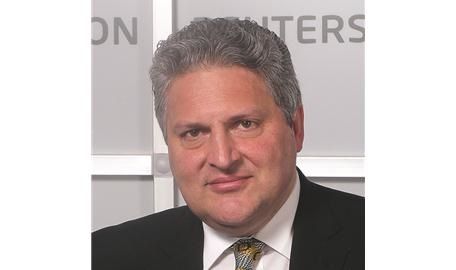While markets continue to confound, I’ve been taken with developments elsewhere, specifically on the bank executive front.
Shayne Elliott’s new tenure as ANZ CEO – which only began on January 1 when he replaced Mike Smith – has certainly started on an interesting note. It’s almost one of those ‘spare a thought’ moments.
If the unfair dismissal cases brought by bond traders Patrick O’Connor and Etienne Alexiou and the allegations about a toxic culture of alcohol, drugs and strip clubs – all vigorously rejected by the bank – weren’t enough, Elliott has the legacy of the BBSW rate-fixing saga in his in-tray. He also has the headache of some senior executive departures.
The latest to walk was Andrew Geczy who quit last week as head of international and institutional banking, reportedly because he was passed over for the top job in favour of former CFO Elliott. The net effect is that ANZ is currently in the market for a head of IIB, a CFO (deputy group CEO Graham Hodges has taken the role on an interim basis) and a permanent head of global markets, a key division of IIB.
On the latter situation, the bank’s high-profile head of global markets Steve Bellotti resigned in November in what was seen as a bit of a shock departure. He was replaced in the immediate term by Singapore-based former co-head of FICC and ex-Dresdner Kleinwort man Eddie Listorti. But a permanent markets heads will, I’m guessing, only be announced once Elliott has chosen his IIB head.
So who’s up for the IIB job? I say step forward Farhan Faruqui. IIB has a deputy CEO in the guise of Hong Kong-based Gilles Plante who’s responsible for business performance management. But if ANZ wants to maintain and build on its institutional super-regional strategy across Asia-Pacific and sustain its trade corridor strategy, appointing the well-known Faruqui, head of ANZ’s institutional client group, would certainly send the right message.
As head of loans and corporate advisory, Christina Tonkin runs a lot of the bank’s core businesses, including project and export finance, asset and leveraged finance, loans execution and other areas of the loan product as well as the advisory piece. But while she’s well regarded in Australia, she doesn’t have stature across APAC, according to one of my colleagues who’s familiar with the region’s business.
That leaves Faruqui in prime position, I reckon, unless the bank decides to look outside. Faruqui joined ANZ in May 2014 as head of international banking after a 23-year stint at Citigroup and was given additional responsibility last June for ICG, handing him control of relationship management across the 34 markets the bank operates in and around 20% of group revenues. He now has management responsibility for ANZ’s country CEOs in Asia Pacific, Europe and America, as well as the heads of relationship banking in Australia and New Zealand.
Whoever gets the job will have to continue the in-play task of refining key business areas within IIB: cutting exposure to lower returning areas of its trade finance business, for example, focusing on RWA efficiency in its global loans business, and sharpening the returns on the Asia-Pac business.
Giving Faruqui the nod would be a logical step.
Staley takes aim
So to my rather tenuous segue: former ANZ CEO Mike Smith was reportedly in the running for the top job at Barclays at the time of Bob Diamond’s ouster and I see that current Barclays boss Jes Staley has started to tweak the group’s investment bank. I noted back in October 2015 when he was named that his appointment “will NOT mean a renewed focus on the investment bank as in building out the business, as some of the bank analysts have said”. The initiatives he unveiled last week certainly support my contention.
In an apparent acceleration of Staley’s strategy, Barclays is closing offices in nine countries in the Americas (including Brazil), EMEA (Russia) and Asia (including Australia), shuttering cash equities and convertible bond trading in Asia-Pacific and closing cash equities in the Middle East, Egypt, Turkey, Greece and Eastern Europe. It’s also exiting US RMBS and Ginnie Mae CMBS trading and asset-backed derivatives, instituting a hiring freeze, cutting a further 1,200 jobs, and potentially putting the precious metals business on the block as the bank seeks to orient itself to its two home poles of UK and US. All eminently sensible, in my view.
Will it go far enough? The group continues pruning and optimising its FICC offering, but I reckon it should ditch equities all together outside the US. It’s pretty much done the job so it wouldn’t be a massive step. And it should refocus its corporate finance efforts around debt advisory, debt solutions and debt underwriting.
I know that’s kind of going back to the House that Bob Built, and the group should maintain an optimised but nonetheless full-service Wall Street operation, but I think it makes sense.
Berenberg analysts reckon the only way to crystallise the bank’s discount to TBV is to break it up. “We struggle to see what synergies exist between the investment bank and the UK retail/Barclaycard business … Separating these businesses would allow greater certainty on the balance sheet and each business to be valued on a true multiple, rather than at the lowest common denominator. An exit from Africa would be a start, but for us Barclays needs to go further,” the firm’s analysts wrote in a note on January 21.
That’s pretty forthright stuff. But if the game is about projecting areas of the business where you can genuinely lay claim to having a value-added offering – and not necessarily (to Berenberg’s point) to building divisional synergies – refocus is surely a superior option to break-up.
